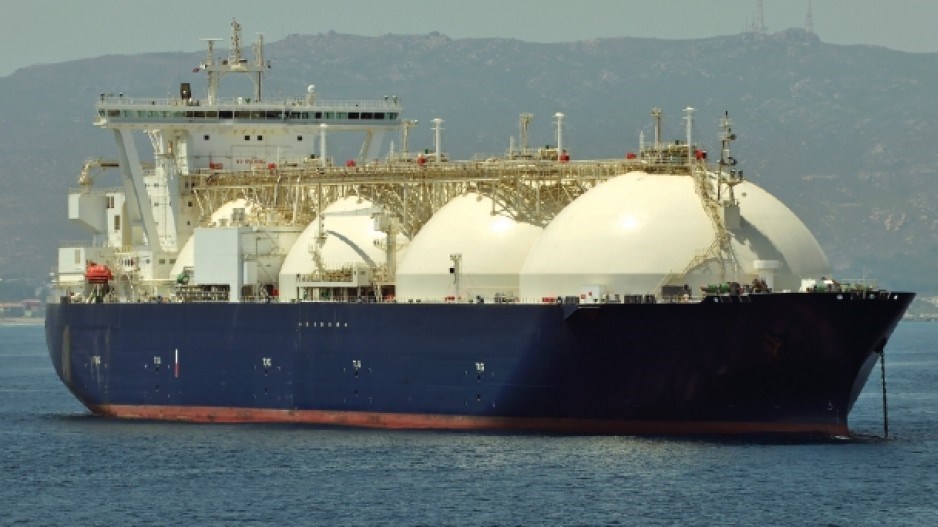Despite government claims B.C.’s liquefied natural gas (LNG) strategy would reduce the impacts of global climate change, a new report finds the province’s efforts to push natural gas will do little to help the environment.
The Pembina Institute study, released October 27, said the belief LNG exports would help climate change is premised on the assumptions natural gas is less harmful than coal and natural gas exports would eventually displace coal.
“These claims are inaccurate,” study co-author Josha MacNab said on a conference call with reporters.
The study acknowledged LNG would produce fewer greenhouse gas (GHG) emissions than coal but MacNab said a greater natural gas supply simply feeds an increasing demand for fossil fuels.
In turn, a greater abundance of cheap LNG would lead to more climate change.
Study co-author Matt Horne told reporters LNG has a role to play in reducing climate change. But he added climate change policy must be stronger on a global basis, not just in B.C., for there to be any meaningful impact on the environment.
“Instead of leading with LNG and natural gas strategies, jurisdictions — B.C. included — need to lead with emissions reduction policies,” the report said.
MacNab said the likelihood of other jurisdictions pushing for strong climate change policies isn’t a guarantee.
“At this point there’s just a handful (of climate change policies around the world) and we need to see those policies ramping up.”
The report recommends the province takes a stronger lead in promoting global climate change policies, strengthens efforts to cut GHG emissions from LNG developments and apply an evidence-based approach when assessing energy exports.
The Pembina Institute is a non-profit think tank based in Alberta that focuses on transitioning Canada to cleaner energy.




